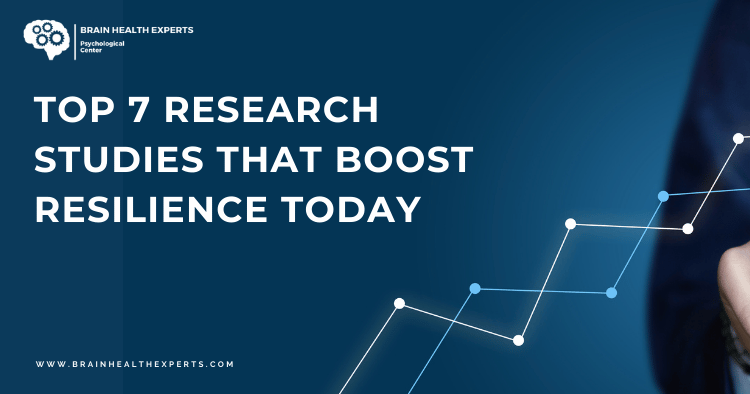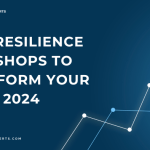- Introduction
- 1. The Power of Mindset: Carol Dweck’s Research
- 2. The Role of Social Support in Resilience
- 3. The Impact of Physical Activity on Resilience
- 4. Emotional Intelligence: A Key to Resilience
- 5. The Effect of Gratitude on Psychological Resilience
- 6. Building Resilience Through Mindfulness
- 7. Resilience in Adverse Childhood Experiences
- Conclusion
- FAQs
Introduction
Resilience is the ability to bounce back from adversity, stress, or trauma, and it is increasingly recognized as a critical skill that can be cultivated. As we move through 2024 and into 2025, new research continues to emerge, providing insights into how various factors contribute to resilience. In this article, we’ll explore seven impactful research studies that delve into the science of resilience and provide actionable insights to enhance your own resilience.
1. The Power of Mindset: Carol Dweck’s Research
Carol Dweck, a renowned psychologist at Stanford University, introduced the concept of the “growth mindset.” Her research suggests that individuals who believe their abilities can be developed (rather than being fixed traits) are more likely to embrace challenges and persist in the face of setbacks. Dweck’s studies show that students who adopt a growth mindset perform better academically and demonstrate greater resilience.
“The view you adopt for yourself profoundly affects the way you lead your life.” – Carol Dweck
Key Takeaway:
Cultivating a growth mindset can empower individuals to view challenges as opportunities for growth, enhancing their resilience.
Learn more about Dweck’s research here.
2. The Role of Social Support in Resilience
A study published in Psychosomatic Medicine highlights the importance of social support in enhancing resilience. Research by Uchino (2009) found that individuals with strong social connections are better equipped to handle stress and recover from adversity. Emotional support from friends, family, and community acts as a buffer against life’s challenges.
“Social support is like a cushion that can soften the blows of stress.” – Uchino (2009)
Key Takeaway:
Building and maintaining strong relationships can significantly bolster your resilience.
Explore the importance of social support here.
Also look for insights on 10 ways positive thinking boosts resilience in tough times for practical applications.
3. The Impact of Physical Activity on Resilience
A study conducted by the University of California, Los Angeles (UCLA) found that regular physical activity enhances resilience by reducing anxiety and increasing self-esteem. Exercise releases endorphins, which can improve mood and mental well-being. This study emphasizes that even moderate physical activity can lead to significant improvements in resilience.
“Exercise is a celebration of what your body can do. Not a punishment for what you ate.” – Anonymous
Key Takeaway:
Incorporating regular exercise into your routine can enhance both your physical and psychological resilience.
Find out more about exercise and mental health here.
4. Emotional Intelligence: A Key to Resilience
Emotional intelligence (EI) plays a crucial role in resilience according to research by Bar-On (2006). Individuals with high emotional intelligence can better manage their emotions, empathize with others, and navigate social complexities. This capability helps them cope with stress and recover from setbacks more effectively.
“Emotional intelligence is the ability to use emotion to think.” – Anonymous
Key Takeaway:
Enhancing your emotional intelligence can improve your ability to deal with challenges and foster resilience.
Read more about emotional intelligence here.
For additional insights, check out 7 ways emotional intelligence boosts workplace success for its relevance in professional settings.
5. The Effect of Gratitude on Psychological Resilience
A study published in the Journal of Personality and Social Psychology found that practicing gratitude can significantly enhance resilience. Participants who kept gratitude journals reported higher levels of positive emotions, optimism, and life satisfaction. This emotional uplift acts as a protective factor against stress and adversity.
“Gratitude turns what we have into enough.” – Anonymous
Key Takeaway:
Practicing gratitude can improve your mental health and resilience.
Learn about the science of gratitude here.
You might also enjoy exploring 10 simple gratitude practices to boost positive thinking.
6. Building Resilience Through Mindfulness
Mindfulness practices, including meditation and yoga, have been shown to improve resilience. Research by Keng, Smoski, and Robins (2011) indicates that mindfulness enhances emotional regulation, reduces stress, and fosters a sense of well-being. These benefits contribute to an individual’s ability to cope with adversity.
“Mindfulness is not about getting anywhere else. It’s about being where you are and being kind to yourself there.” – Anonymous
Key Takeaway:
Incorporating mindfulness practices into your daily routine can enhance your resilience.
Discover mindfulness techniques here.
For practical applications, consider 10 mindfulness practices to boost your resilience today.
7. Resilience in Adverse Childhood Experiences
A study by the CDC and Kaiser Permanente found that individuals who experienced adverse childhood experiences (ACEs) are at a higher risk for health problems throughout life. However, resilience factors such as supportive relationships and community resources can mitigate these risks. Understanding the impact of ACEs can help individuals and communities foster resilience.
“Your past does not define you, but it can inform your future.” – Anonymous
Key Takeaway:
Supportive relationships and community resources can help individuals overcome the effects of childhood adversity.
For further reading, see 10 effective strategies for building resilience in children.
Conclusion
Understanding the research behind resilience equips us with tools to improve our mental health and well-being. From adopting a growth mindset to building strong social connections, each of these studies provides valuable insights into how we can foster resilience in ourselves and others.
“Resilience is not about avoiding stress but rather about learning to thrive in the face of it.” – Anonymous
Whether you’re navigating life’s challenges or seeking personal growth, these strategies can help you thrive.
FAQs
What is resilience?
Resilience is the ability to bounce back from adversity, stress, or trauma. It involves adapting well in the face of challenges.
Can resilience be developed?
Yes, resilience can be developed through practices such as mindfulness, physical activity, emotional intelligence, and social support.
How does social support affect resilience?
Strong social support provides emotional and practical resources that can help individuals cope with stress and recover more effectively from adversity.
What role does physical activity play in resilience?
Regular physical activity enhances resilience by reducing anxiety, improving mood, and increasing self-esteem.
For more information on resilience and mental health, feel free to explore the links provided throughout this article. Remember, building resilience is a journey, and every step you take is a step toward a stronger you!





